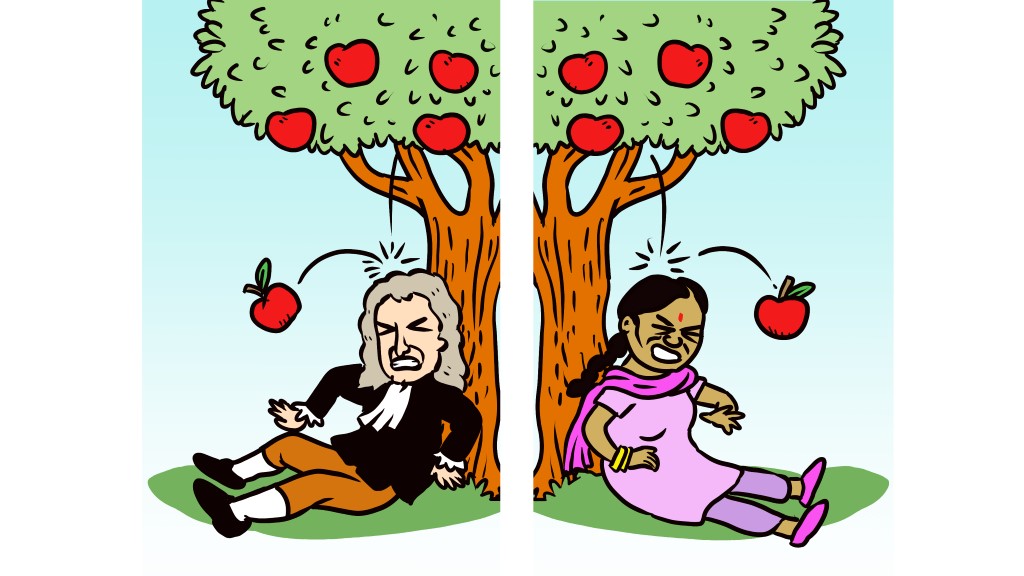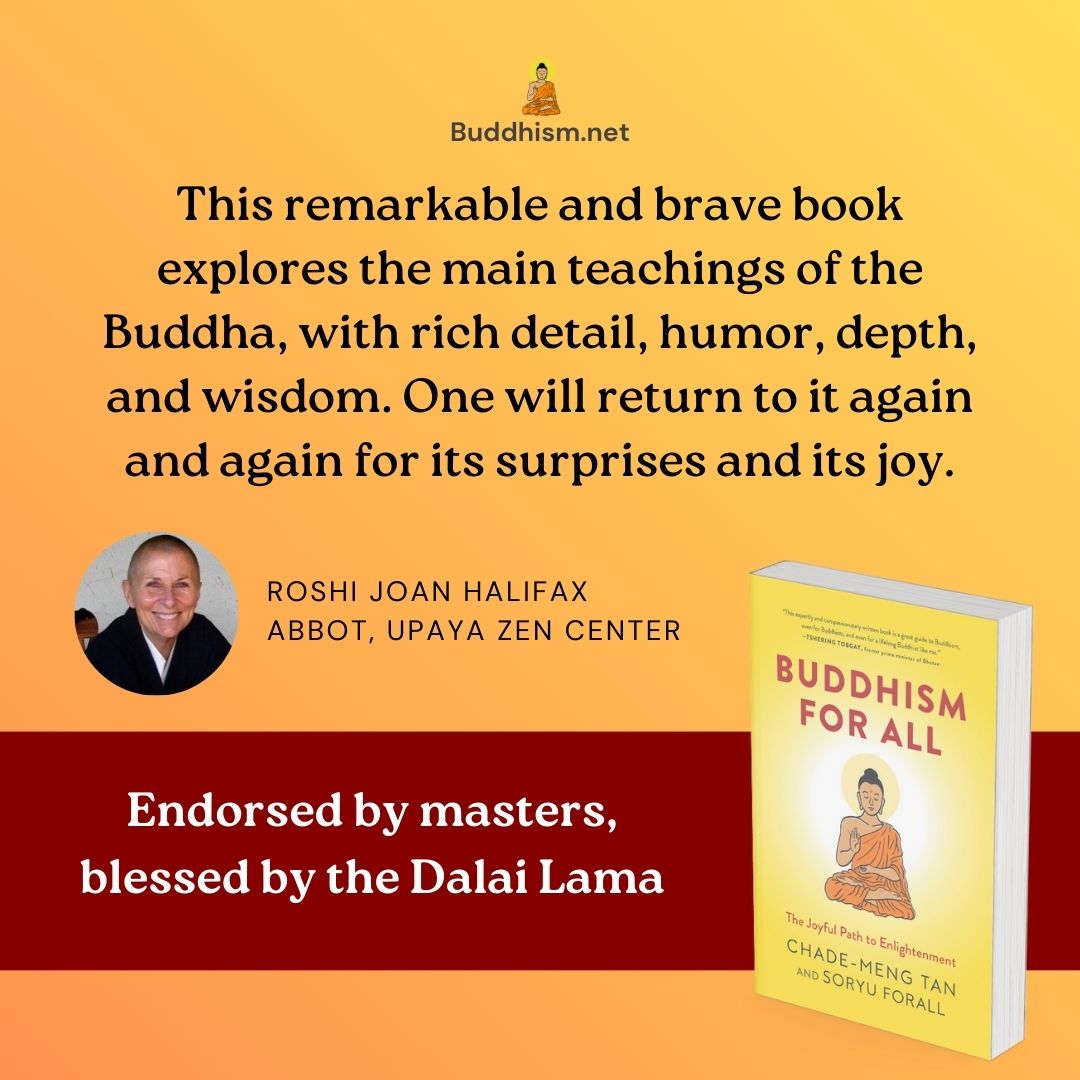
The teachings of the Buddha can be encapsulated in a single word: Dharma. Dharma is one of those highly polymorphous words with annoyingly many meanings. The broadest meaning of the word dharma (written in lowercase) is “phenomena.” In that sense, everything is a dharma because everything is a phenomenon. In Buddhism, the definition of Dharma (capitalized) that is most useful is this:
Dharma is universal law pertaining to suffering and liberation from suffering.
“Universal law” here means the laws of cause and effect. It is akin to the laws of physics. For example, one law of physics states that force equals mass times acceleration (F = ma). Therefore, if I apply ten newtons of force to an object weighing one kilogram, it will accelerate by ten meters per second squared. That is universal law, the law of cause and effect.
When we talk about Dharma, we are talking about the same universal laws of cause and effect, but we restrict the domain to suffering and liberation from suffering. A silly example of Dharma is this:
- If I bang my head against the wall, I will suffer from a headache.
- Therefore, if I don’t bang my head against the wall, I will not create that suffering for myself.
In that sense, Dharma is not banging your head against the wall.

In Dharma, we are specifically interested in these four subdomains of universal law:
- The nature of suffering
- The cause of suffering
- The cessation of suffering
- The methods for ending suffering
Here’s how applying these four subdomains to our silly example of banging my head against the wall can relate to mindfulness practice: First, I bring mindfulness to my body and I realize there is a pain in my forehead once every few seconds. Ouch . . . ouch . . . ouch. There, I realize the nature of suffering. Then I observe my actions with mindfulness and discover that I’m banging my head on the wall once every few seconds. So that’s why I’m getting this pain in my forehead! I realize the cause of this suffering. Next, I practice mindfulness to sharpen my perception and I discover that in between banging my head against the wall, there are moments where I experience no pain. I understand the cessation of this suffering. Finally, I mindfully stop myself from banging my head against the wall. And there, I realize the method for ending this suffering.

Master: “Another head-banger, I see.”
The Dharma as presented and articulated by the Buddha is known as “Buddhadharma.” Hence, Buddhadharma is the version of universal law pertaining to suffering and liberation from suffering as taught by the Buddha. In Buddhism, Buddhadharma is almost always shorthanded to Dharma, and is usually thought of as “the teachings of the Buddha.” Hence, in the Buddhist context (including in this book), if you see the word Dharma, it almost always means “Buddhadharma.” Fortunately, that does not cause any confusion due to an important feature of the universal laws of cause and effect: those laws do not change regardless of who the discoverer is and how he or she articulates them.
Let’s pretend that on the same day an apple fell on the head of a young man in England called Isaac Newton, another apple fell on the head of a young woman in India called Deepika Chandra. Pretend they were both inspired to do a series of experiments and both then independently discovered the law of gravity. But they described it differently: Newton described it as “attraction between bodies,” while Chandra described it as “universal affinity causing bodies to resist separation.” So now there are two different articulations of the law of gravity, yet the cause and effect involving gravity does not change one iota. It does not matter if it is called “Newton’s Law” or “Chandra’s Law,” earth’s gravity will still attract the same apple with the same force.

Similarly, it does not matter if it is Buddhadharma (Dharma as explained by the Buddha) or Schmodharma (Dharma as explained by some random guy called Joe Schmo), Dharma is still Dharma, the cause and effect surrounding suffering remains unchanged, and banging your head against a wall is still as painful. For that reason, within a Buddhist context, Dharma and Buddhadharma can be used interchangeably. It is also important to note that Dharma, being universal law, is not exclusive to Buddhism. Dharma is everywhere. Wherever there is an understanding of suffering and liberation from suffering, there is Dharma.
Activities
Related Content
I once gave this talk relating to the topic.
Artwork by Colin Goh.

